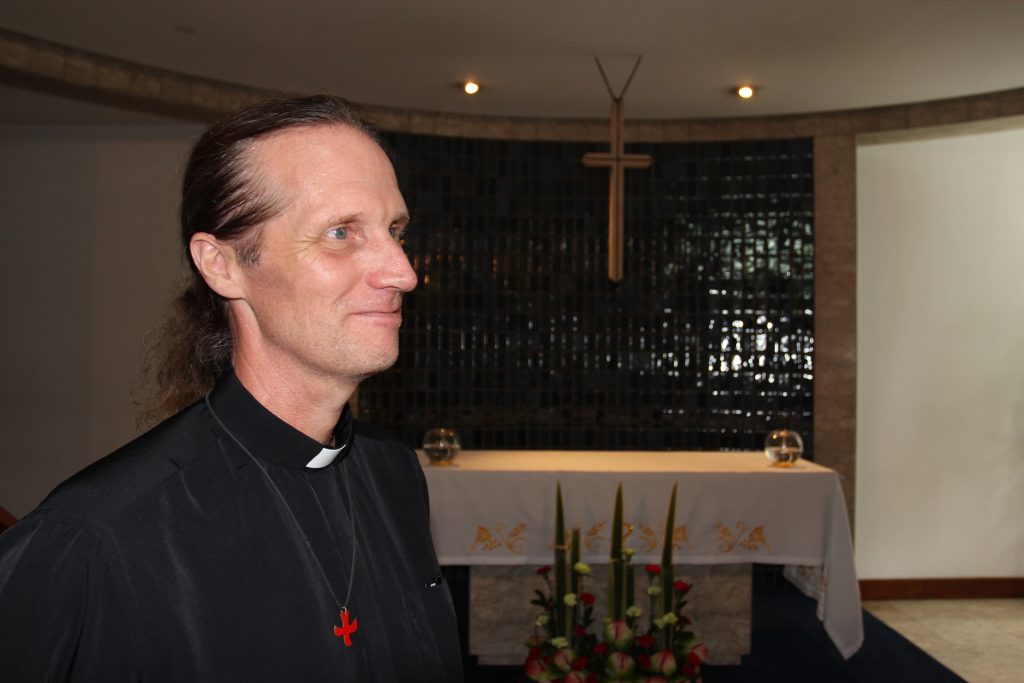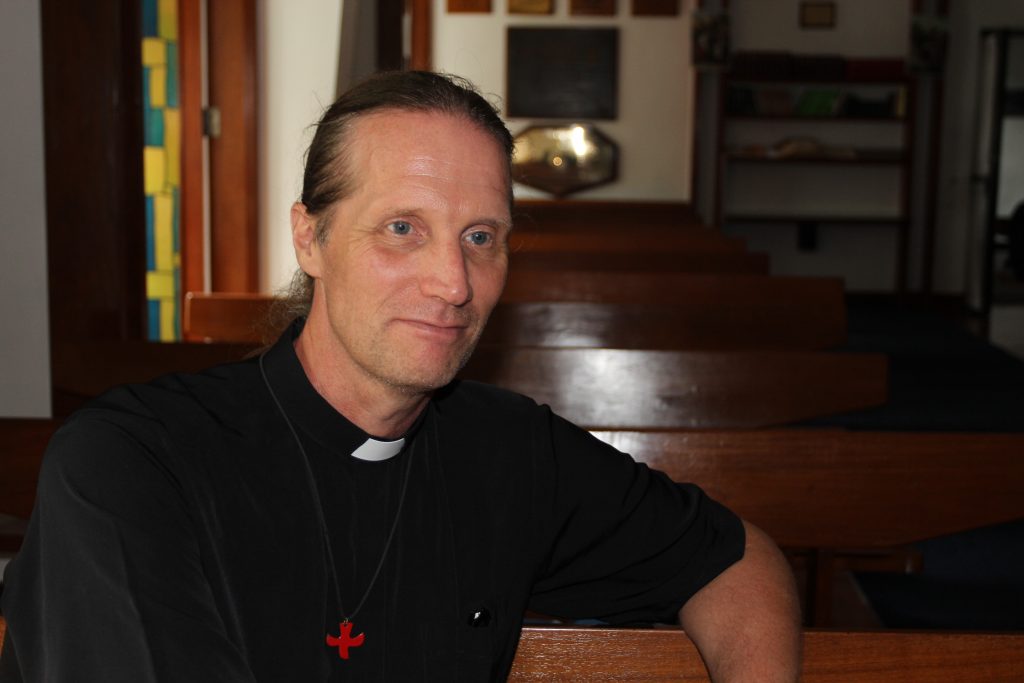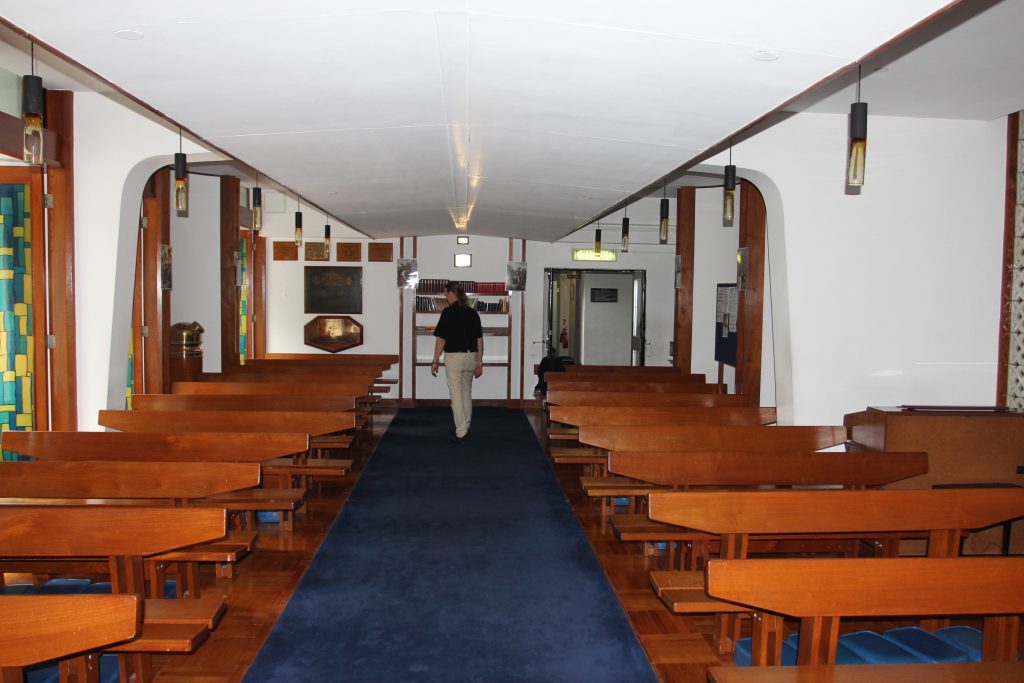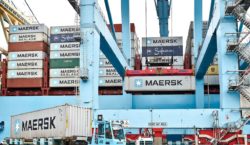
Anders Johansson was constituted as the Swedish priest in Hong Kong October 2014. He shares his experiences and thoughts about his position and the Church’s role in Hong Kong after almost two years of practices.
When Anders Johansson left Sweden in the autumn of 2014 he left behind 20 years of Ministry Priest duty in Kalmar. He left the historical Kalmar Cathedral build in 1703 and he left the steadfast local churchgoers, a 10-man church team and fairly good means available in the church’s budget. Altogether a very normal and, in his own words, “spoiled” position as a priest.
What he arrived to was ministerial work in an area that is incomparable to his former parish in Kalmar, covering Hong Kong and China as the sole representative for the Swedish Church but with assistance from his wife, Kerstin Johansson, managing with significantly smaller means and no permanent physical church for sermons and other duties. Adding to this Hong Kong and China is a revolving door to business people and momentary positions, which means an ever changing expat community.
A restless community
“People are almost never coming here to stay permanently. They are always on the run, it’s a restless community in one sense or dynamic on might say. It’s changing all the time and that is of course a challenge for me”, begins Anders Johansson.
In Kalmar he could plan his work for the long-term. He would ask himself how to act with the congregations and the municipality and make a plan for the coming 3-4 years. In Hong Kong that’s impossible; for one thing because the contract only runs for three years. Also there would be a core of churchgoers in Kalmar. In Hong Kong the faces turn up, only to fade away just often, which requires a different approach to Anders’ work.
“In one way I do more pioneering work here in Hong Kong and China than I used to in Sweden. When the community change so swiftly, I constantly have to try and engage and meet new people.”
A church without a church
Anders is not one to complain though; the work is just different, with one of the main differences being the absence of a permanent church. The church can accommodate for sermons and so on, but it’s different.
“In Kalmar they had a room to sit in, light a candle, make a prayer and get inner peace. A place to go to basically. We don’t have that in the same way here, so my main task is to be present in as many different situations as possible to create awareness of the church. Of course I’m still not the church, but just a representative”, he says.
This brings him more out of the office and “out in the field” for meetings in Hong Kong – in the park, in restaurants etc. and of course to meet the congregations in Shanghai, Beijing and Taipei once every month.

The church as a cultural embassy
As it goes for every church abroad the Swedish Church in Hong Kong plays an important role for the expat community. Being a small village in a big society, running a church for people who are foreigners in a country changes what the church represent to people.
Anders explains: “Of course we’re first and foremost a church, but for many people who are abroad we’re also a representative for Sweden. In that way this is also a kind of cultural embassy”.
For some people the church is the only place where you can go and have an open conversation in Swedish. As a foreigner there’s a greater risk of feeling lonely. Conversation about different problems and concerns that one would have with friends or family at home, is not possible in the same way when you live abroad, thinks Anders. He has professional secrecy in his position, but he tells that the concerns people come to him to talk about are largely the same as back home.
In a church abroad there’s also a very different demographic to the church in Sweden, because people doesn’t necessarily attend out of deep-rooted believe in Christianity.
“The sermons have to be different here. You have to be speaking the same language as the people attending and if they’re not that familiar with the church, I’ll have to adjust to that,” he says.
A will to help
Another difference in demography in the church comes out of why people are in Hong Kong. People working abroad, often puts them in a somewhat privileged position financially.
“The Swedes in Hong Kong have one thing in common: they’re very skilled, that’s why they are here. This means the social need is not that the churchgoers or our community is out of money”, Anders Johansson explains. This fact creates a social will to help, he says: ”When you have a good economic situation, it’s not just about keeping as much as possible for your self. It can also open up the will to do something for others that are less privileged”.
This fits perfectly to Anders’ values for the church as an institution. It’s important for him to engage and educate in the surroundings of the church.
”Even in Hong Kong there is a social need, there are people in situations far away from the luxury and the fashionable lifestyle that is often associated with this city.”
He has tried to incorporate education on this and create awareness of the life of asylum seekers and migrants with his confirmands for example.
Defining a modern church
As society modernizes it secularization and traditional religion becomes less important, it is said in common social science. The Swedish Church statistics on members tells the same story: since 2004 (and probably earlier) there’s been at least four times more members leaving the church than new ones entering.
With continuously falling member numbers, Swedish churches might have to overcome many challenges in the future. In that sense the priest feels practicing as the priest in Hong Kong has strengthened him for the future. One challenge could be joggling with a smaller budget – something he has gotten used to.
“It’s a good challenge. You learn to be creative to find solutions and get as much as possible arranged and done with very small means. I think that is the future of the church, that we’ll have to get used to. We (the church of Sweden) have been very privileged in economic terms so far.”
One of the solutions, which have been a necessity for churches abroad for a long time, is the need for voluntarily engagement from the congregation. It is especially important, when covering such a big region, as Anders Johansson rarely can be present in China. This means “that people need to engage if they want something to happen. It’s very dependent on the people,” he says.
“That’s one of my greatest learnings – that without people supporting it the church wouldn’t mean anything. To some extent when people meet in this community it’s the church that meet”.
Anders Johansson’s contract runs out October this year. At the time of the interview he had not yet decided whether to apply for an extension or not.
If you are intrigued to know more about Anders Johansson, you should read this ScandAsia-interview from when arrived to Hong Kong in 2014.




